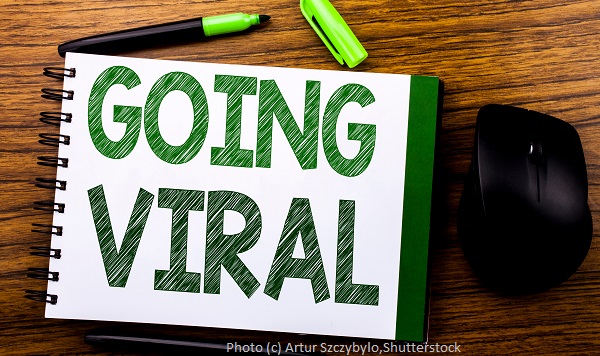|

The Clichés Might Have it Right
By Wendy Priesnitz
If you have spent any amount of time on social media sites, you will be familiar with memes – those quotes and graphics portraying cultural symbols and social ideas that get passed along ad nauseum, often intended as inspiration. While memes can turn into clichés pretty quickly, clichés can sometimes help create change by the very nature of their repetition.
For instance, over the past number of years, there have been two such ideas making the rounds, sometimes as actual social media memes and othertimes as the topic of media articles. The ones I am thinking of are “Green is the new black” and “____ is the new tobacco.”
Green being the new black simply means that environmental awareness has become hip. In the mid-2000s, Rachel Sanderson wrote in a Reuters news story that a market research firm in the U.K. had found that sales of organic, free range or Fairtrade foods were surging and that “Green is the new black in ethical Britain.” Meanwhile, fashion writer Suzy Menkes told her International Herald Tribune readers “Why Green is the New Black.” Why? Well, according to Bono of U2 and the Edun line of clothing, “We have got to find ways of making our activism sexy, and fashion is it.” Apparently the venerable Sierra Club agrees, because its magazine portrayed fashion designer Katharine Hamnett as “making green the new black.” Wouldn’t want to go back to wearing “hairy sacks,” said Hamnett.
Vanity Fair editor Graydon Carter proclaimed that (guess what?) “Green is the new black” when he introduced the magazine’s green issue in 2006. I’ve since seen the phrase used as a headline in the magazines Time and Inc., in the Sunday Times, on many websites and blogs, and in materials published by the UK Environment Agency and the Australian City of Sydney. Somewhere along the line, that phrase gained the status of a cliché.
Then there’s that business about the new tobacco. Unlike the color metaphor, there doesn’t seem to be a consensus about what exactly is the new tobacco. But this meme is the flipside of what is hip. Writer Matthew Lynn wrote in Bloomberg News in 2006, “There is a very real possibility that aviation is about to become the new tobacco – a product once universally popular that is now socially unacceptable.”
Or maybe that unhip product is junk food. In an effort to fight the rise in childhood obesity, five of the largest snack food producers have said they will start providing more nutritious foods to schools. Responding to the move, Dr. Thomas Robinson, associate professor of pediatrics at the Stanford School of Medicine, likened the problem as “similar to what happened to tobacco over the last several decades.”
Along the same lines, the Canadian Heart and Stroke Foundation has warned that “fat is the new tobacco.” No, it’s sugar, according to a 2016 commentary in the journal Medscape Public Health.
A British shareholder activist group argues that “oil is the new tobacco,” with companies facing large law suits – similar to those launched against tobacco firms – if they ignore the potential consequences of global warming. Meanwhile, an Australian blogger feels that cell phones could be “the new tobacco.” Then there’s Printing World magazine, which asked, “Is offset litho the new tobacco?” (That article had something to do with meeting environmental regulations.)
Or could it be air pollution? In 2017, the head of the World Health Organization warned that air pollution is, indeed, the “new tobacco,” pointing out that the simple act of breathing is killing seven million people a year and harming billions more.
Ironically, commerce drives both of these memes. Although I believe that capitalism is one of the problems, rather than the solution to the problems we find ourselves in on this planet, purchasing eco-friendly versions of products that we need is definitely a forward move. But we must be vigilant deciding what we need, because the tobacco meme reminds us that, since the 1960s, the tobacco industry has spent billions of dollars to encourage smoking and hide its negative health effects.
The bottom line for me is that irritating as clichés can be, these two herald some strong steps in the right direction. Public opinion polls show that health and the environment are at or near the top of people’s lists of personal priorities. That means that most of us are willing to make fundamental changes in our lives in order to ensure a future for our children. If it takes clichés to make people trade in their Hummers and SUVs, eat locally and organically, and even to stop smoking, I’m all for them.
Wendy Priesnitz is the co-founder and editor of Natural Life Magazine, where an earlier version of this appeared as an editorial in January of 2007. She is also the author of 13 books and a contributor to many more.
|

